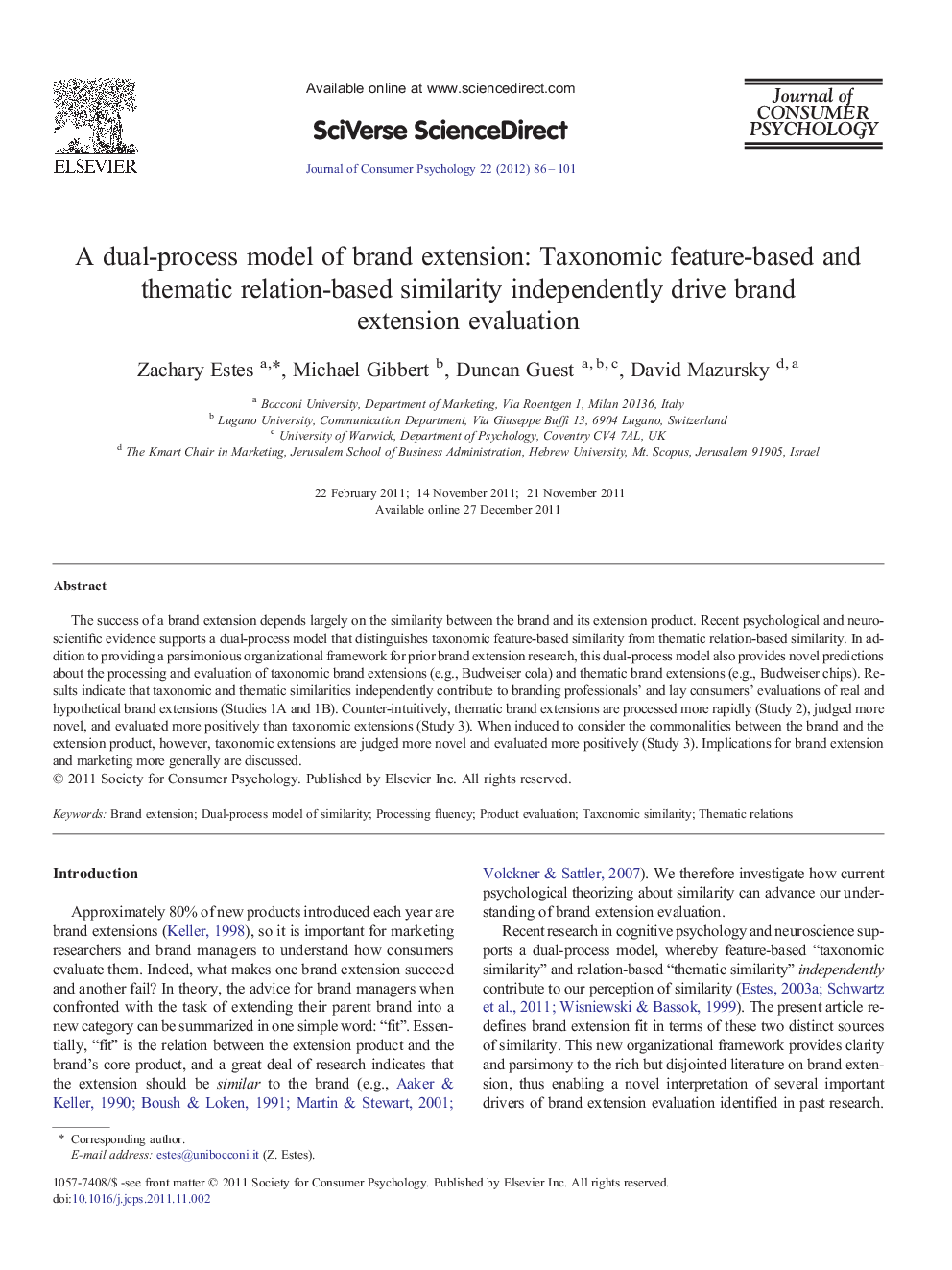| Article ID | Journal | Published Year | Pages | File Type |
|---|---|---|---|---|
| 882234 | Journal of Consumer Psychology | 2012 | 16 Pages |
The success of a brand extension depends largely on the similarity between the brand and its extension product. Recent psychological and neuroscientific evidence supports a dual-process model that distinguishes taxonomic feature-based similarity from thematic relation-based similarity. In addition to providing a parsimonious organizational framework for prior brand extension research, this dual-process model also provides novel predictions about the processing and evaluation of taxonomic brand extensions (e.g., Budweiser cola) and thematic brand extensions (e.g., Budweiser chips). Results indicate that taxonomic and thematic similarities independently contribute to branding professionals' and lay consumers' evaluations of real and hypothetical brand extensions (Studies 1A and 1B). Counter-intuitively, thematic brand extensions are processed more rapidly (Study 2), judged more novel, and evaluated more positively than taxonomic extensions (Study 3). When induced to consider the commonalities between the brand and the extension product, however, taxonomic extensions are judged more novel and evaluated more positively (Study 3). Implications for brand extension and marketing more generally are discussed.
